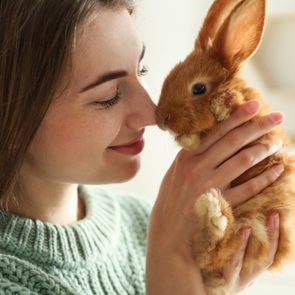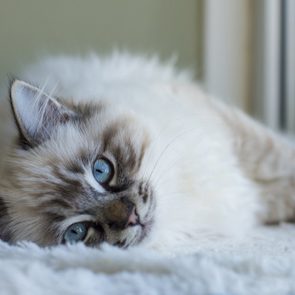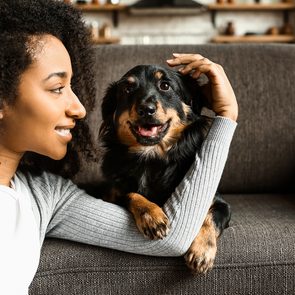Why I Adopted a Pair of Ducklings During the Pandemic
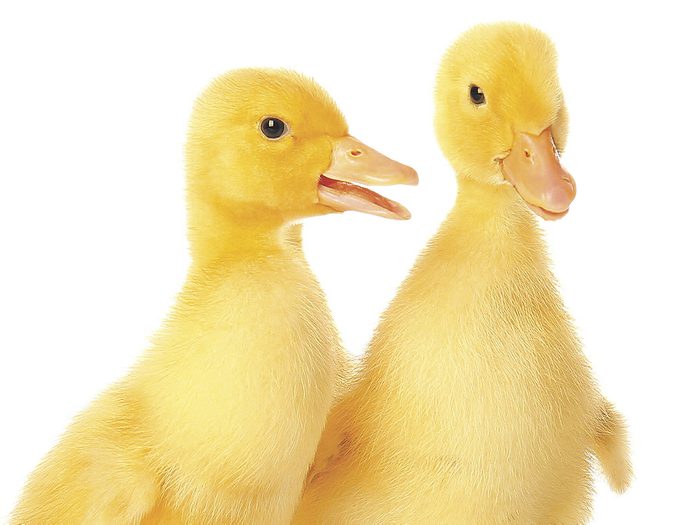
Fostering a pair of ducklings brought new joy to our home—until I discovered what awaited them back at the farm.
Ping & Gaston
Over the past year, I’ve found myself justifying all manner of what you might call non-essential purchases in the name of lockdown.
I ordered a hand-knit cotton sweater from Spain and throw cushions from Sweden, but the most delightful and, um, let’s say, unusual thing I “added to cart” was a pair of Pekin ducklings.
This happened last June, when my husband, Joaquin, my five-year-old son, Leo, and I were in month three of lockdown. By then, I had long shuttered the charade that was our home school, and there were no summer camps and no play dates. If there was a playdate, I was the playmate—and I was exhausted. Even our two cats seemed increasingly oppressed by our constant presence, pining for Precedented Times, when the house was their private hotel and humans would only occasionally pop in, like housekeeping.
So there I was scrolling Instagram, retreating into the seeming perfection of other people’s lives, when I spotted a friend’s photo of two tiny golden ducklings in her living room. I messaged her immediately. She explained that she was fostering the babies for a farm in rural southern Ontario. You can adopt the newborns and parent them as long as you like—typically, the farm explains on its website, the usual foster lasts a few weeks, until the ducklings waddle from their downy infancy into their more obstreperous, feathered teenaged fowl-hood. This program helps fund the farm and, I told myself, generously provides us with what we’d been lacking: joy, spontaneity and fellowship.
“We’re getting ducklings!” I proudly announced. Joaquin replied with something along the lines of “What?”
I explained that, for $165, the farm would bring us everything we needed—“chick Gatorade,” a heat lamp, food and bedding (a bale of pine shavings) and also an activity for Leo.
“Okay. When do we get them?” he said gamely, at which point, I smugly concluded that I had married wisely. “You never really know a man until you’ve divorced him,” said Zsa Zsa Gabor. Yes, or until you’ve adopted livestock together in a pandemic.
About 10 days later, on a sunny June morning, a man from the farm arrived at our downtown Toronto doorstep. In what will remain the best delivery moment of my life, he handed over a shoebox housing a pair of newborn chicks.
Leo and I held them in our hands, each one a tiny, almost weightless parcel of silky gold. Their webbed feet, clementine-orange, felt soft and satiny against our palms, and their glossy little beaks were unexpectedly warm. Leo immediately cast himself as their father, and they accepted the role happily, waddling at his heels and slipping on our hardwood floors, like Bambi on an ice rink. He decided to call one of the ducklings Gaston, after his favourite cartoon character, and I named the other one Ping, after the Chinese duck hero from one of my favourite childhood books.
Leo kissed Ping and Gaston on their beaks and they nipped at his lips, which he concluded meant they loved him. He then decided that they must need a bath after a long trip from the country. He filled a Tupperware bin with water, which filled me with a surge of relief. (It was an activity! Without an iPad!). So much of parenting, especially pandemic parenting, comes down to guilt management. And our new family members delivered me from mine. When Leo lowered them into the bin, they took to water like, well, ducks. Afterwards, we swaddled them to keep them warm.
If the pandemic had plunged us all into chaos, at least this kind had a madcap charm. The messiness was, also, literal, of course. For the ducks, the world is not so much a stage as it is a toilet—you can’t house-train a duck the way you can a dog. I had read that as a foster duck parent, you can fashion tiny diapers. One surely could do such a thing, but I did not. And while Leo was happy to share love and Cheerios, he swiftly made himself scarce when it came to the dirty work.
“It’s okay, Mummy, I’ll let you clean that mess,” he’d so generously offer. At this point, while serving as parent, cook, playmate, cleaner and head butler to Leo, I also had duck husbandry to add to the list.
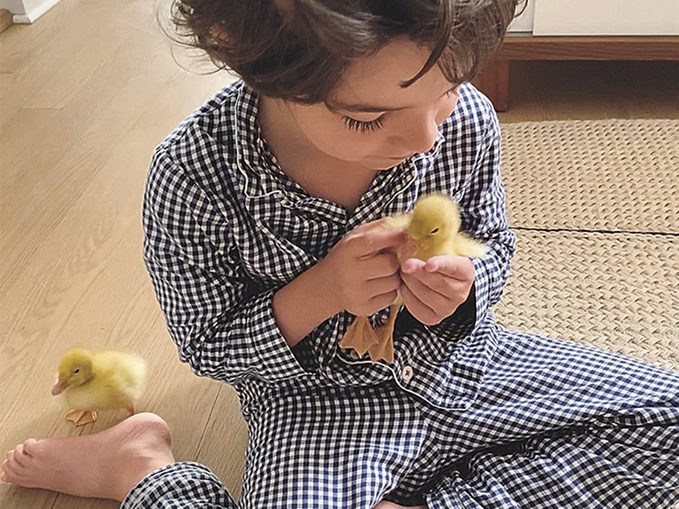
After a few weeks, the ducklings at least tripled in size, and the fairy tale took a turn. As much as we loved Ping and Gaston, they’d become an armful, and I began to think it was time to return them. It was only then, however, that I realized that I didn’t know what would happen to them back at the farm. When I called to find out, the woman on the phone, annoyed by this line of inquiry, tersely suggested that I refer to the last page in my “duckling manual”—a beak-orange folder that had arrived with our pets. In fine print, I read to my horror that they’d likely serve as a “wonderful supper” at a wedding or a banquet. We had been fostering these animals, hadn’t we, not fattening them for a meal?
We couldn’t keep them, but I also couldn’t drive them back to their demise. And this is how I found myself launching a sort of duck-adoption agency, frantically emailing and calling animal sanctuaries in hopes of finding them a safe home. Meanwhile, the ducks flirted with adolescence, awkwardly sprouting snowy feathers. (Ping, the taller of the two, looked like he might take up smoking.)
After about a week and a half, I was losing hope. Then I received an email from a lovely woman who lives on a hobby farm in Port Perry. She was looking for more ducklings. She was vegan. She was perfect!
We chauffeured Ping and Gaston to their new home, and as we crunched over the gravel road, I felt as if we were slipping into the pages of a Beatrix Potter book. Bunnies hopped around sunlit grasses; a wooden swing hung from an old tree; miniature horses were enjoying a gambol about the pasture; and grown-up ducks promenaded about, their plumage white and plump as summer clouds. If the owner had offered to adopt me, too, I would have happily moved in. We left our ducks and headed home, feeling the sadness of empty nesters (forgive the pun).
The duck’s home farm never followed up with me or attempted to get them back. But a couple of months later, the adoptive parents got in touch to send me a photograph of Ping and Gaston. They were adults. In their snowy splendour, they were strolling about with six other ducks.
“They have a great duck life!” she wrote, “free to roam and be with their friends.” They somehow found what the pandemic has taken from us all—freedom and the comfort of community. I felt a certain swell of maternal pride, nostalgic for their golden babyhood and for the duck days of the pandemic summer. Finding them this country house of dreams was the best thing I did in 2020. Also, maybe the only thing.
These other pandemic pet adoption stories will warm your heart!
